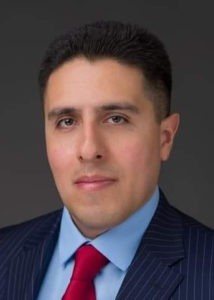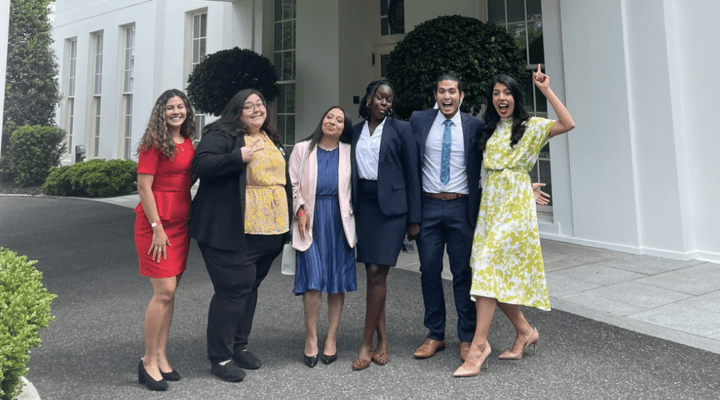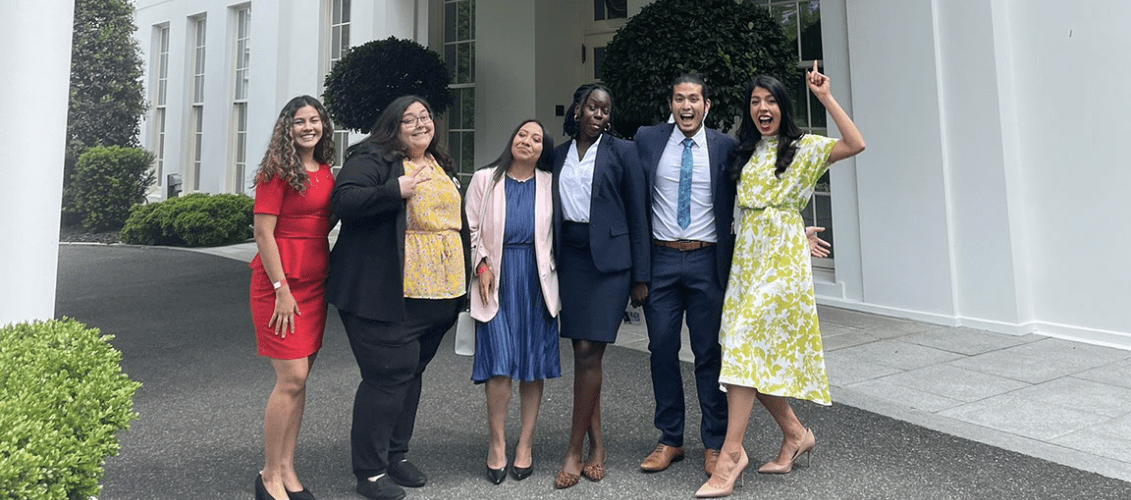The Biden Administration must do more to protect DACA than invite Dreamers to the White House and streamline the bureaucratic process that grants temporary residency to immigrants who entered the U.S. illegally as children, recipients of the program say.
So far, the president has given little more than the “lip service and the typical rhetoric” politicians offer in support of the Deferred Action for Childhood Arrivals Program, said Ricardo Morones Torres, an Austin, Texas, resident and law school graduate who has enjoyed DACA protections since 2013.

Ricardo Morones Torres
“There’s always talk but not enough action,” Torres said. “We are not seeing any heavy lifting or pushing for immigration reform.”
On May 14, Biden met with Dreamers — a term gleaned from previous Congressional Dream Act proposals to prevent deportations and grant working status to immigrants who grew up in the U.S. — to express his support for that program, for migrant farmworkers, Temporary Protective Status holders and other immigrants considered essential to the U.S. economy.
“The president and the Dreamers also discussed the continued need for immigration reform and the White House’s strong support for the Dream and Promise Act and the Farm Workforce Modernization Act, two bills that have already passed the House with bipartisan support and are awaiting action in the Senate,” a White House statement said.
Both measures would provide paths to citizenship for DACA recipients while enabling the government to reject applicants considered threats to national security, according to an analysis by the National Law Review.
And the president’s U.S. Citizenship Act of 2021, introduced in Congress in February, would make about 11 million undocumented immigrants eligible for lawful protective immigrant, or LPI, status. Immigrants working in essential services also would be eligible while immigrants who came into the U.S. as children, including Dreamers, would qualify for lawful permanent status.
As those measures wind their way through the legislative process, the existing DACA program is being bolstered at the procedural and regulatory levels, Felicia Escobar Carrillo, chief of staff in the office of the director of the U.S. Citizenship and Immigration Services, said during a recent webinar.
“We are actually working to fortify and preserve DACA as directed by a presidential memo that was signed on Jan. 20,” she said.

Greg and Sue Smith
One aspect of the program that needs to be addressed is the date of U.S. entry to be eligible, said Greg Smith, Cooperative Baptist Fellowship field personnel and co-founder of an immigrant services ministry in Fredericksburg, Va., that offers legal services.
“The main difficulty with DACA today is that very few young Dreamers have been in the U.S. since June 15, 2007, which was the original and still current starting date for continuous presence a person has to prove in order to qualify for DACA. When the Obama administration first established DACA in 2012, proving continuous presence in the U.S. since 2007 wasn’t that difficult. But now in 2021, it is,” he said.
DACA applicants usually are relieved that the program continues to exist, Smith said, because it “exists to provide some shelter from possible deportation, not to mention providing them with an Employment Authorization Document (work permit) so they can earn money without fearing government reprisal.”
But he also is curious about long-term solutions. “Something I would like to know is where Congress is in terms of making DACA, or something like it for Dreamers, permanent.”
DACA recipients and their families remain vulnerable as long as such questions have to be asked, said Hector, a 29-year-old Dreamer who lives in Fredericksburg, Va.
Hector said the program has opened doors, enabling him to get a driver’s license, earn a degree from Bluefield College in Virginia and land a job as a payroll compliance auditor.
“For me and a lot of DACA recipients, the reason for being in DACA is to allow us to progress more and more as our goals become bigger and bigger,” he said.
“We want to push the administration to act more aggressively.”
“But there is always another obstacle, and for me and other recipients right now that obstacle is citizenship,” Hector added. “We want to push the administration to act more aggressively.”
In Austin, Torres agreed the sense of urgency he and other Dreamers feel about the pace of the White House and Congress on immigration reform stems from the blessing DACA has been to them and their families.
Torres, who is studying for the Texas bar exam and hopes to become a prosecutor, said he doesn’t want to return to the fear that plagued him throughout his childhood.
“I was fully aware of my illegal status even at the age of 4 because crossing the border with your parents while the Border Patrol is chasing you makes you fully aware,” he said. “I have always lived in fear because I knew we didn’t have the legal status to be here, so into my teenage years it was always a concern.”
The fears resurfaced for a time when former President Donald Trump attempted to end the DACA program. His efforts were overturned by the U.S. Supreme Court in 2020.
Hence, Torres and other Dreamers are doing what they can to share their stories and to urge the White House to drive harder for the codification of DACA and other immigrant protections.
“Our main concern is that the whole immigration issue is going to be placed on the back burner like it was under the Obama administration, or that President Biden and congressional Democrats are not going to push hard enough for an immigration deal,” Torres said.
Related articles:
Biden administration rushing to strengthen DACA, official says
A bipartisan immigration bill has been introduced, but will it garner bipartisan support?
Panelists debate how to ‘normalize’ immigration after ill effects of Trumpism
What would happen if immigration policies were based on majority opinion in the U.S.?


